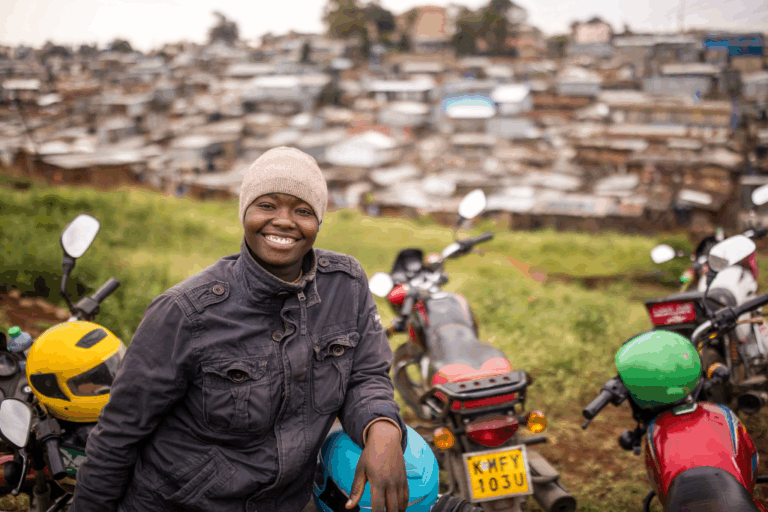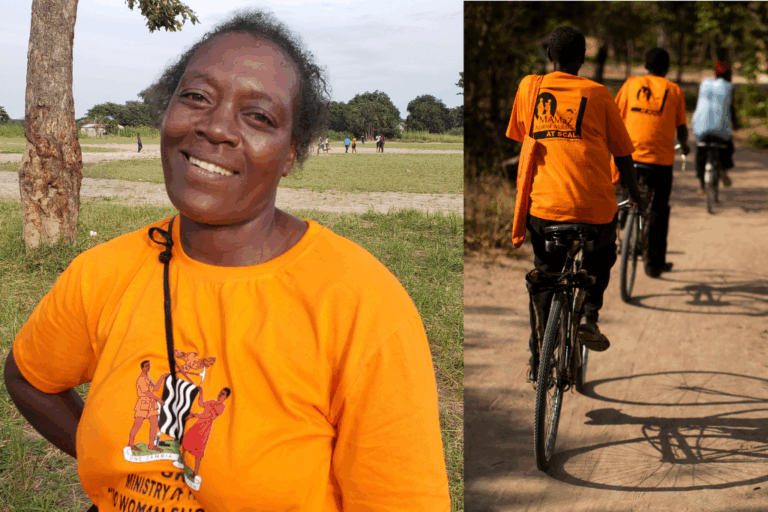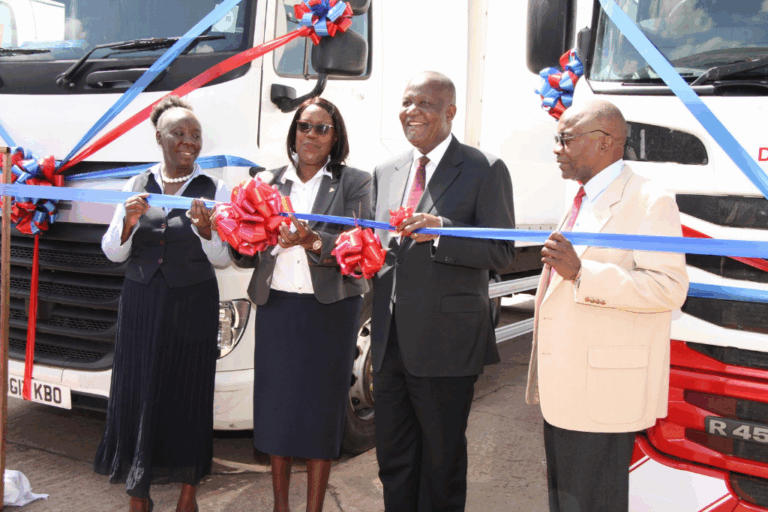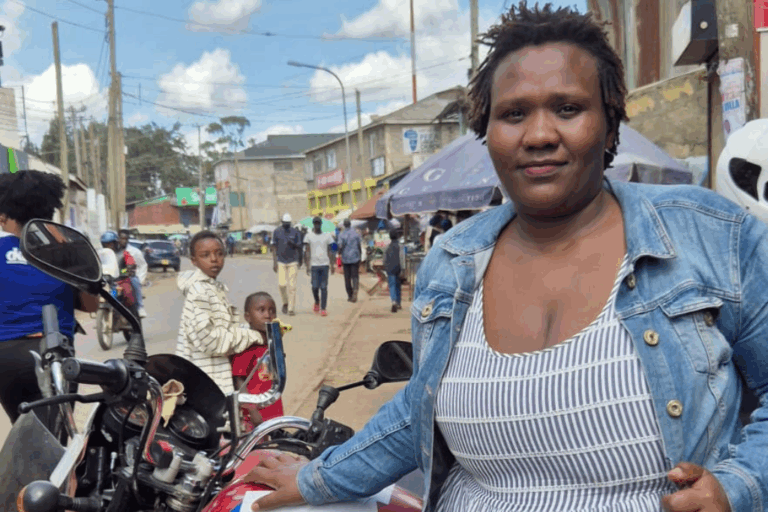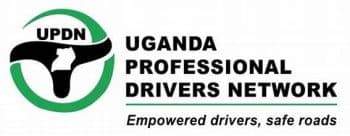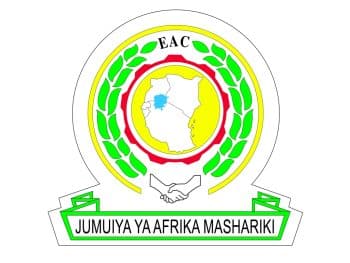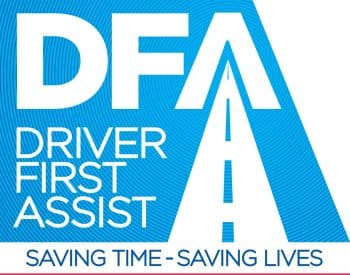
News

Innovation Fund: Transaid funds post-crash care project in Uganda
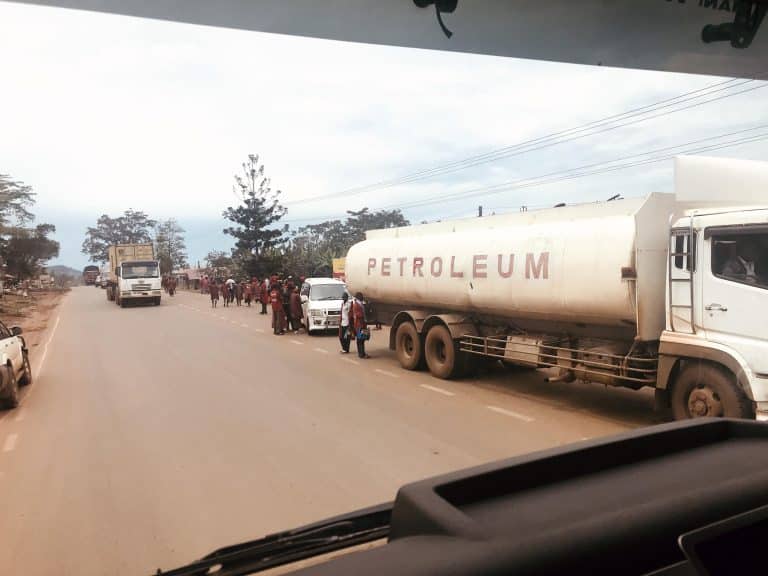
Our Innovation Fund has financed a pilot project implemented by The Makerere University School of Public Health to strengthen emergency medical services in post-crash care along selected roads servicing oil rich districts in Uganda.
Earlier this year, the Makerere University School of Public Health signed a Memorandum of Understanding agreement with the World Health Organisation, aimed at promoting safe, effective and affordable research in public health and training. The WHO initiated the development of sustainable and cost-effective integrated emergency care systems on the continent as a way of dealing with the road crash injuries.
The objective of the project was to assess the capacity of the Emergency Medical Services (EMS) and pre-hospital care in these areas which have a high volume of heavy goods traffic, and to improve the capacity of emergency post-crash responders.
The recent discovery of oil in Uganda has led to an increase in heavy goods traffic on certain roads in Uganda, which is expected to increase the already serious risk of road traffic fatalities in those regions. The objective of the project was to assess the capacity of the Emergency Medical Services (EMS) and pre-hospital care in these areas which have a high volume of heavy goods traffic, and to improve the capacity of emergency post-crash responders.
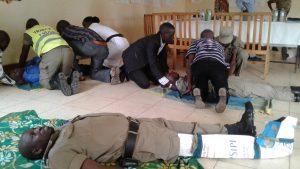
Speaking about the project, Transaid’s CEO Caroline Barber said: “Uganda faces a severe road traffic injury epidemic, with one of the highest road traffic fatality rates at a projected 29 deaths per 100,000 population. Many of these lives are lost before getting to the hospital in a context where Emergency Medical Services are practically non-existent and responders lack the appropriate knowledge and skills to provide basic first aid care to the injured victims.
“The Makerere University School of Public Health approached us directly for help, and after a full assessment by our team, we agreed to cover the small cost of this initiative through our Innovation Fund.”
The post-crash care project delivered a three-day Emergency First Aid Responder (EFAR) training course to 34 police officers who regularly respond to traffic crashes, and who are often called upon to provide in-situ life-saving care. The course included training in emergency first aid, safety considerations, patient assessment, and how to deal with trauma, shock, difficulty in breathing and mass casualties.
In addition, a four-day Basic Emergency Care (BEC) course developed by the World Health Organisation was delivered to 25 health workers who manage acute life-threatening conditions with limited resources. The training was facilitated by Dr. Doreen Alaleit, Dr. Linda and Ms. Halima Adam from Makerere University, College of Health Science Department of Emergency Medicine.
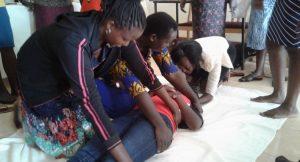
Post-training assessments showed a 39 per cent improvement in knowledge, with course participants all achieving a 75 per cent pass mark. The study team received full support from the Ministry of Health, and health facilities who provided health workers to conduct the training and participate in the project.
Within the study, baseline assessments found that pre-hospital care for injured victims was predominantly administered by untrained police personnel and lay responders who arrive first at a traffic crash scene. With no organised ambulance service delivering patients from crash scenes to hospitals, police patrol vehicles and boda bodas (motorcycle taxis) were found to be the main means of transportation for injured victims to health facilities.
The project also found that with proper training in the principles of field triage and emergency stabilisation, easy-to-use scene care check lists and triage tools, and a basic kit of essential equipment and supplies, personnel in charge of traffic scene management should be able to provide crash scene control and the appropriate pre-hospital care to the injured.
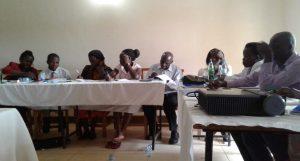
However, notable challenges remain when responding to road traffic crashes including a limited availability of first aid materials to enable police to carry out their roles as first responders, a lack of transport of police personnel to the crash scene and delayed communications of traffic crash events.
Caroline concluded: “The funding we were able to provide has helped Makerere University to bridge the knowledge and skills gap among first responders. It’s an important first step which will help to save lives; and it reinforces the importance of increasing education and awareness around road safety.”
The pilot complements Transaid’s Professional Driver Training – Uganda project, which since 2017 has worked to build the capacity and knowledge of heavy goods vehicle (HGV) and passenger service vehicle (PSV) drivers; and ultimately enhance their employability whilst reducing the number of road traffic fatalities through safer driver behaviour.
Recent Posts



